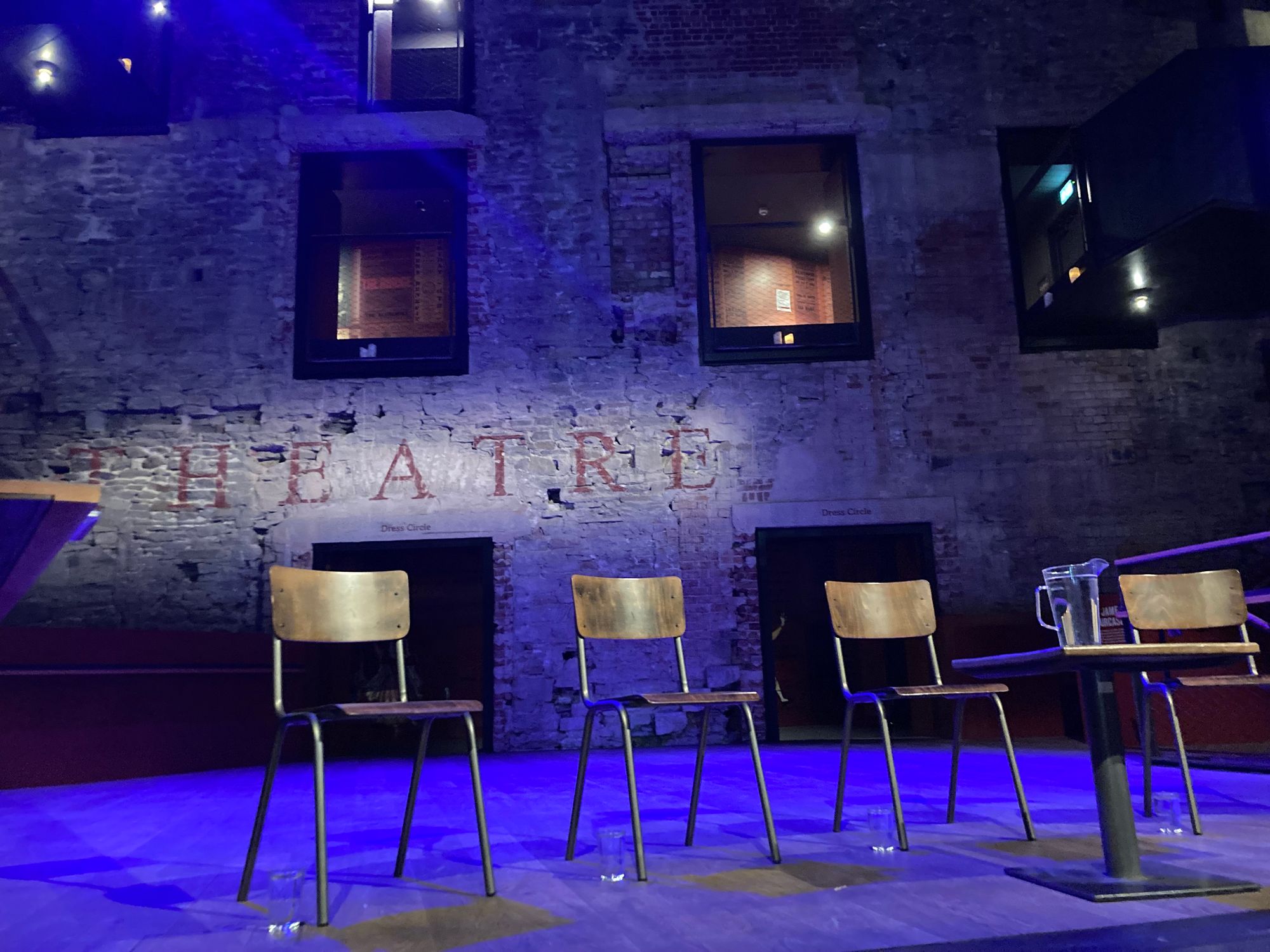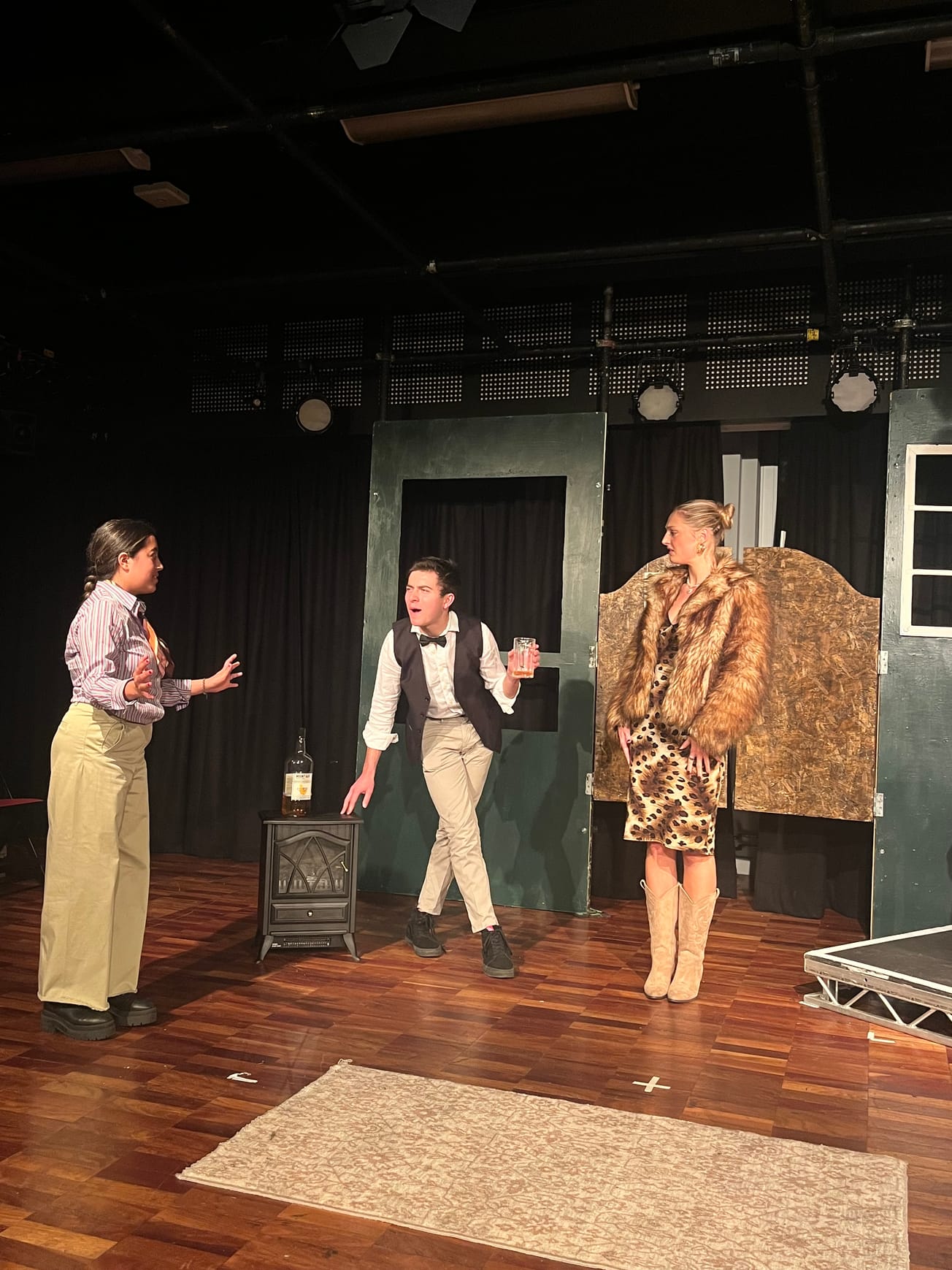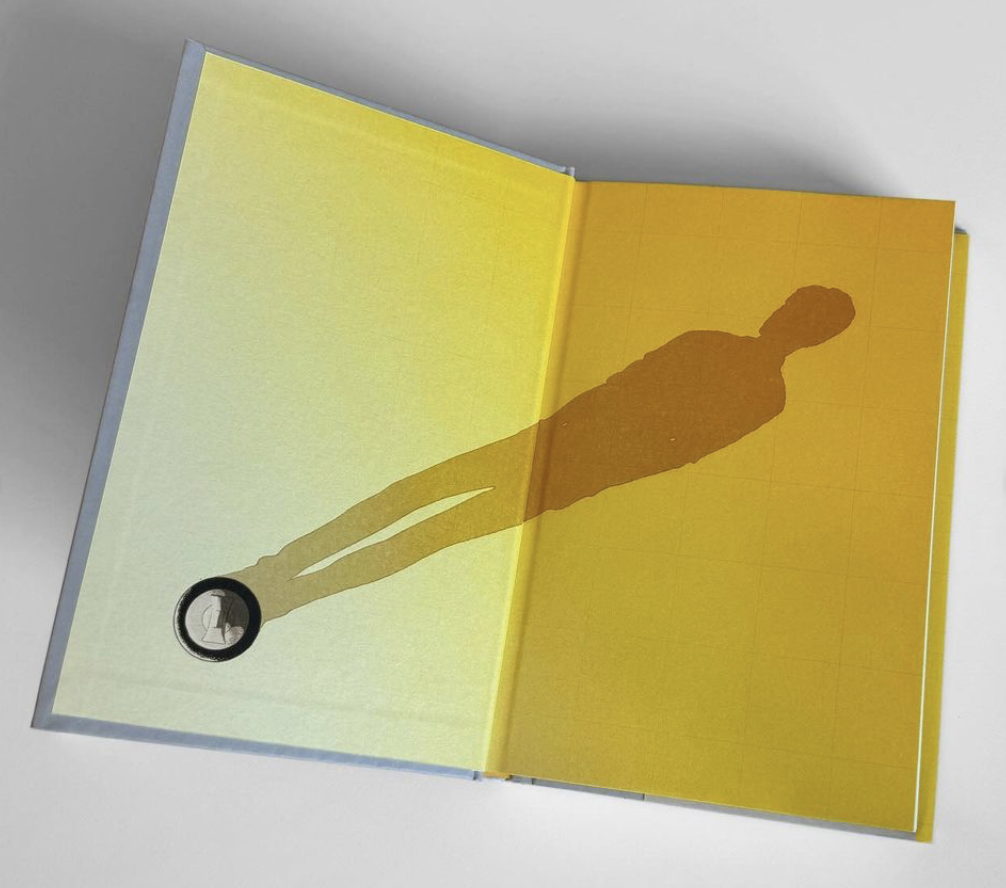By Inès de Boudemange, Third Year Geography
In the late afternoon of Tuesday 15th November, Bristol Old Vic held a plethora of people, of all ages and gathered by the same passion, waiting for the conference, The Genesis Conversation: Arts in a Time of Crisis, to start.
I took a seat in the front row of the Bristolian theatre; next to me, the panellists were discussing amongst themselves. If I had not looked beforehand at the faces behind these unfamiliar names, I would never have been able to distinguish the panellists from the spectators.
For when Angie Bual (Creative Director and Joint CEO of Trigger), Shami Chakrabarti (Chair of The Gate theatre), Vanessa Kisuule (Writer and Performer) and Alan Lane (Artistic Director of Slung Low) spoke, I had the impression of participating in a conversation between friends.
Gathering his guests to talk about art in times of crisis, Tom Morris (Artistic Director of Bristol Old Vic from 2009 -2022) opened the floor with a historical dive. In the aftermath of the Second World War, with the economy devastated and the government massively in debt, the latter decided to subsidise the creation of theatres outside London. This idea, revolutionary and visionary, declared that participatory life, local economy and access to culture were essential to the reconstruction of the country.
From renewing the local connection and new networks of cultural opportunities, to asking the London Old Vic to send a company to Bristol, the basement and soul of the Bristol Old Vic were born.

More recently, the issue has been raised again, because of the COVID-19 pandemic. Tom Morris asked the panellists and the audience how, in this new period of major societal and economic crisis, we can continue to foster participation in cultural life.
What new challenges can bring hope? How can we invigorate fallen optimism? What is there to be hopeful about in these strange circumstances?
In response, Vanessa Kisuule points to the fact that, in order for art to survive, it is now necessary to change the very functioning of cultural infrastructures. She insists that this remodelling must come from those who already have access to cultural networks. They must use the footholds they have to continue opening up these structures to others, to make them truly accessible for all.
Alan Lane then emphasised that culture opening up from artists to the community is all the more necessary and urgent at a time when capitalism and art are intertwined. He used the example of Holbeck theatre, where, by the time a show ends, there are no more buses to take people home, as they stop running at the same time as the shops close. So, if the artistic life is opened up to the local community, a myriad of new alternatives, sensibilities and dynamics will be created - in this example the stimulation of local taxi companies, or simply walking home together while discussing the show.
The panellists emphasised that community connection is at the heart of artistic preservation and of ongoing development. For Shami Chakrabarti, such a reorganisation requires keeping local people engaged in civic and cultural life, and showing them that their participation is the very essence of everything. It provides art sustainability, since artistic creation is born from sharing.
This position is illustrated by the experience of Vanessa Kisuule, who still carries out many commissions and must therefore constantly apprehend, understand and grasp the emotions and needs of the lives of others. Angie Bual argued for the necessity and beauty of “slow work”, that which is born of a shared vision, the pieces of truth brought by each, and thus a combination of indulgence, empathy and commitment.
The panellists then seek to make it clear that art is not top-down, and that "everyone is a moviestar" (Shami Chakrabarti), an exhortation then challenged by a remark from the audience, questioning the existence of high culture. For Vanessa Kisuule, this idea of "high culture" is socially constructed, culture being based on community support and local emanation. She concluded, prompting laughter in the room, by saying "fuck the government lowkey".
Featured Image: Courtesy of Inès de Boudemange






